MercoPress. South Atlantic News Agency
Economy
-
Monday, June 24th 2013 - 03:13 UTC
LAN and TAM Airlines awarded as Best South American Airlines by Skytrax

LAN Airlines and its affiliates and TAM Airlines, members of LATAM Airlines Group, were once again recognised as the Best Airlines in South America, receiving first and second place, respectively, according to World Airline Survey, conducted yearly by Skytrax, the prestigious English company dedicated to the world airline and airport industry.
-
Saturday, June 22nd 2013 - 05:51 UTC
Pacific Alliance in a “marketing success” and no concern for Mercosur, says Brazil
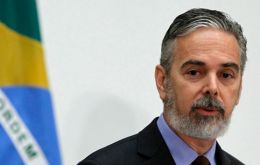
The Pacific Alliance is a ‘marketing success’ and does not represent a concern for Mercosur since it does not have the potential for physical integration as other blocks from the region, said Brazilian Foreign minister Antonio Patriota during a congressional hearing this week in Brasilia.
-
Friday, June 21st 2013 - 16:52 UTC
World Bank preparing for when US begins to slow money creation
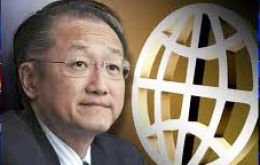
The World Bank is concerned about the spill-over effects on developing countries of a slowing of US money creation and will move to provide affordable capital when borrowing costs rise.
-
Friday, June 21st 2013 - 16:41 UTC
Russia to supply China 270bn dollars in oil on 25 year contract
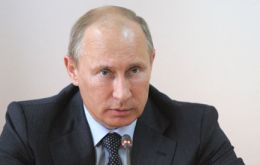
Russian state oil company Rosneft has agreed to double its oil supplies to China, in a deal worth 270bn dollars over 25 years. Under the terms of the deal, Rosneft will supply 300.000 barrels of oil a day to China starting in 2015.
-
Friday, June 21st 2013 - 16:29 UTC
Irish-bred sheepdog ‘Bob’ is auctioned at a record-breaking €11,000

An Irish-bred sheepdog has shot to fame by becoming the most expensive working dog ever sold at an official sale, making almost €11,000 at auction. Bob, a 15-month-old dog sold by John Bell of Parks Farm, Howden, Selby in East Yorkshire, for a record-breaking £9,240 at the working dog sale in Skipton Auction Mart, North Yorkshire, on May 17.
-
Friday, June 21st 2013 - 06:10 UTC
Rousseff envoy to Argentina to try and mend trade and investment difficulties
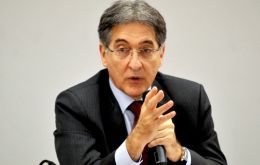
Brazilian Industry and Foreign Trade minister Fernando Pimentel met this week in Buenos Aires with President Cristina Fernandez and members of her cabinet to address several bilateral trade issues that growingly concern President Dilma Rousseff because of Argentina’s increasingly market protection policies.
-
Thursday, June 20th 2013 - 05:42 UTC
Argentina’s economy recovering in May and trade surplus above estimate

Argentina's economic growth sped up slightly in the first quarter and May's trade surplus was above expectations according to the latest release on economic data. GDP was up 3% from a year earlier and 1.5% from the fourth quarter of 2012.
-
Thursday, June 20th 2013 - 03:03 UTC
Swiss lawmakers defy Washington reject deal to lift banking secrecy and expose US tax dodgers
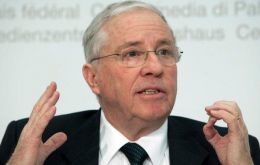
Swiss lawmakers rejected Wednesday a deal proposed by Washington to halt ruinous US legal action provided that Swiss banks that helped stash cash expose American tax dodgers and pay hefty fines.
-
Thursday, June 20th 2013 - 02:25 UTC
Fed warns investors to be prepared for an easing out of stimuli later in the year
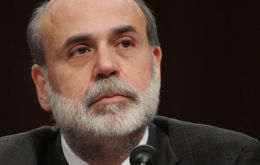
United States Federal Reserve Chairman Ben Bernanke is putting investors on notice that the central bank is prepared to begin phasing out easing programs later this year.
-
Wednesday, June 19th 2013 - 23:54 UTC
Gibraltar invites Spanish treasury inspectors to dispel claims of tax evasion money
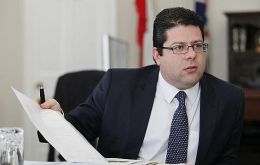
Spanish treasury inspectors tasked with “tightening the noose” on Gibraltar have been invited to travel to the British Overseas Territory and talk to officials in a bid to debunk claims that the Rock is harbouring tax dodgers from Spain.
